Understanding the Landscape of Modern Therapy in 2025
Therapy has evolved beyond clinical couches and whispered conversations. In 2025, therapy is proactive, tech-assisted, and deeply personal. Whether you’re an individual battling anxiety or a family unit facing communication breakdowns, mental health support has never been more tailored or accessible.
Two of the most common therapeutic approaches today—family therapy and individual therapy—offer distinct yet overlapping benefits. Understanding the key differences, applications, and outcomes of each can guide your choice for a more effective mental wellness journey.
What Is Individual Therapy and Who Is It For?
Individual Therapy Explained
Individual therapy (also known as psychotherapy, talk therapy, or counseling) is a one-on-one session between a licensed therapist and a client. This private setting allows for focused attention on personal challenges, goals, and psychological growth.
Common Reasons People Seek Individual Therapy
- Managing anxiety, depression, or stress
- Working through trauma or grief
- Building self-esteem and confidence
- Addressing career-related pressures
- Developing coping mechanisms for daily life
- Healing from past relationships
What Is Family Therapy and When Is It Needed?
The Core of Family Therapy
Family therapy involves two or more family members attending therapy together. The aim is to understand and resolve conflicts, improve communication, and foster a supportive environment.
Key Situations Where Family Therapy Helps
- Blended family integration challenges
- Parent-child relationship breakdown
- Coping with a family member’s illness or addiction
- Addressing generational trauma
- Divorce, separation, or custody-related stress
- Sibling rivalry or behavioral issues in children
The Major Differences Between Family Therapy and Individual Therapy
While both family therapy and individual therapy aim to improve mental health, their core objectives, structure, and therapeutic strategies differ significantly. Individual therapy focuses on personal emotional challenges, offering a private, one-on-one space to process internal struggles such as anxiety, depression, trauma, or self-esteem issues. The therapeutic alliance is built solely between the therapist and the client, allowing for deeper introspection and targeted personal growth.
In contrast, family therapy takes a relational approach, involving multiple family members to uncover and address dynamics that may be contributing to collective stress or dysfunction. The goal isn’t to place blame but to encourage open communication, repair broken trust, and establish healthier patterns of interaction. Family therapy is particularly effective when conflict exists within relationships—whether between parents and children, siblings, or spouses—and it often includes strategies to shift entrenched behavioral cycles that affect the entire household.
Choosing between the two involves understanding where the root of the problem lies: within the individual or the system they’re part of. When the issue is internal and personal, individual therapy may be most appropriate. When the challenge involves relational patterns or multiple people, family therapy provides a broader lens for healing.
The Unique Benefits of Individual Therapy
Deep Personal Insight and Emotional Release
Individual therapy provides a safe space to unpack years of emotional weight. Whether through Cognitive Behavioral Therapy (CBT) or mindfulness-based approaches, clients often achieve clarity and self-compassion.
Flexible and Focused Growth
Each session is tailored to personal goals. From managing panic attacks to rebuilding self-esteem, progress is measurable and manageable.
Enhanced Privacy and Emotional Safety
Because sessions are confidential and private, individuals often feel more comfortable exploring painful topics without fear of judgment or family repercussions.
The Unique Benefits of Family Therapy
Strengthened Family Communication
Therapists act as mediators, helping family members express themselves without defensiveness or blame. This often leads to breakthroughs in long-standing conflicts.
A Systems-Based Approach to Mental Health
Family therapy doesn’t isolate a single person as “the problem.” Instead, it views challenges as shared and rooted in interactional patterns.
Ideal for Multi-Generational Healing
Families dealing with generational trauma or cultural clashes can benefit from therapeutic settings where all voices are heard and respected.
Real-Time Behavioral Adjustments
Because multiple family members are present, therapists can observe interactions in real time and help implement healthier communication immediately.
Choosing Between Family Therapy and Individual Therapy
Ask Yourself These Questions
- Are the issues you’re facing personal or relational in nature?
- Is conflict or tension present between you and family members?
- Do you feel the need to understand yourself better before involving others?
- Are multiple people affected by the issue you’re addressing?
When Individual Therapy Might Be Better
If you’re dealing with internal challenges such as trauma, depression, or identity crises, individual therapy may offer the depth and privacy needed.
When Family Therapy Is the Better Choice
If the root of the problem lies in interactions with family members—or if family involvement is essential for healing—family therapy is more effective.
Combining Both Therapies for Holistic Growth
In many cases, the best solution isn’t choosing one or the other—it’s combining both.
The Cave Clinical Services, based in California, offers customized care plans that include both individual and family therapy. Our expert therapists recognize that mental health doesn’t exist in a vacuum. You may start with individual sessions to build your emotional foundation and later transition into family therapy to heal relationships.
Evidence-Based Effectiveness: What Research Says
Individual Therapy Outcomes
According to the American Psychological Association, 75% of individuals who undergo therapy report significant improvement in emotional health. Cognitive Behavioral Therapy, in particular, has been shown to be highly effective in treating anxiety, depression, and PTSD.
Family Therapy Outcomes
Research from the Journal of Marital and Family Therapy indicates that family therapy improves relationship dynamics in over 65% of families. When combined with treatment for addiction or mental illness, family involvement drastically improves recovery rates.
Why Choose The Cave Clinical Services?
The Cave Clinical Services is committed to transforming lives through expert-led therapy that honors both individual and relational healing. Here’s what makes us unique:
- Licensed and experienced therapists with diverse specializations
- Flexible therapy plans that include hybrid sessions (in-person + virtual)
- Compassion-first care that respects your journey
- Proven success in family therapy, trauma recovery, and youth therapy
We offer both family therapy sessions in California and individual therapy for adults, teens, and children, supporting emotional resilience at every level.
Real-World Scenarios: When Clients Benefited Most
Case 1: Rebuilding After Divorce
A single father and teenage daughter sought therapy after a painful divorce. Through combined individual and family sessions at The Cave Clinical Services, they reestablished trust and learned to communicate openly.
Case 2: Teen Anxiety and Family Support
A high school student struggling with social anxiety found relief through CBT sessions, while her parents attended family counseling to learn how to provide the right support at home.
Case 3: Multigenerational Trauma
A family dealing with decades of unresolved trauma from immigration challenges underwent systemic family therapy, allowing all members to share, understand, and heal together.
Final Thoughts: Which Therapy Will Help You Thrive?
The truth is, there is no one-size-fits-all therapy. Choosing between family therapy and individual therapy depends on your goals, your relationships, and your emotional needs.
If you’re still unsure, start with a consultation at The Cave Clinical Services. Our experienced therapists will guide you toward the best path for healing—be it one-on-one counseling, family therapy, or a hybrid of both.
Key Takeaways
- Individual therapy offers focused personal growth, privacy, and coping strategies.
- Family therapy enhances communication, heals relational wounds, and encourages collective growth.
- Both therapy types can be integrated for a comprehensive mental health plan.
- The Cave Clinical Services provides expert care customized to your unique situation.
- Choose therapy based on your immediate needs—whether internal healing or relational restoration.
FAQ – Family Therapy vs Individual Therapy
Q: Is family therapy more effective than individual therapy?
A: It depends on the issue. For relational conflicts, family therapy is often more effective. For internal struggles like anxiety or trauma, individual therapy works best.
Q: Can I do both therapies at the same time?
A: Yes. Many clients benefit from a combined approach, which we offer at The Cave Clinical Services.
Q: Is therapy confidential when multiple people are involved?
A: Family therapy has shared confidentiality. However, boundaries are set clearly in sessions to ensure trust and safety.
Q: How long does therapy usually take?
A: Both individual and family therapy vary in length based on needs. Some issues resolve in a few months; others may require long-term support.

